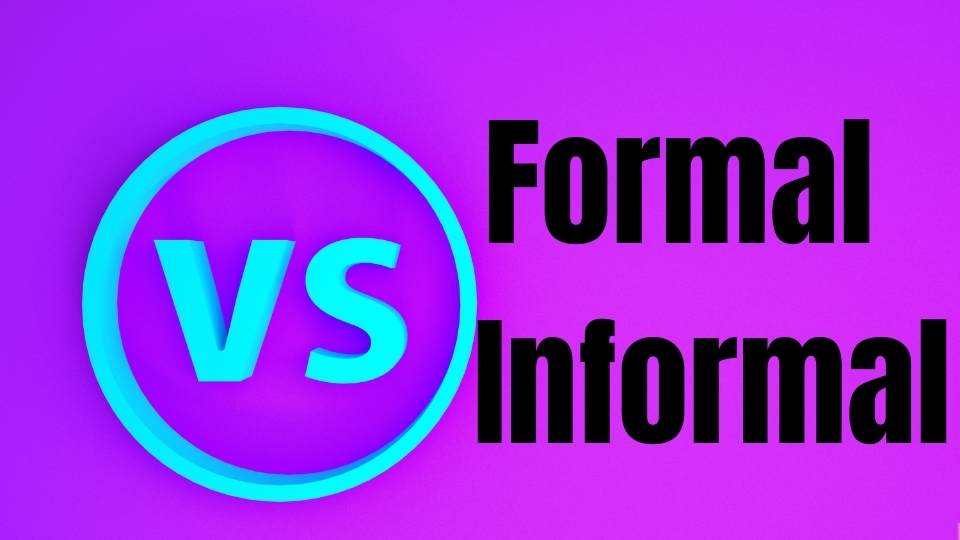Are looking for What is formal education? rights! then I am here for you. Or, If you come to read this, chances are you want to go through at least one traditional education.
In the past, the education system was limited to the rich. So the poor were not afraid to be educated. Even at that time, it was straightforward to rule that the majority of the people, i.e. you, would be too illiterate to protest with your own argument. They, therefore, have a quality education system from this medieval to the present time. In other words, there is no part of the education system like you have now. Naturally, nobles, merchants and princes had the opportunity to study. Farmers and children, on the other hand, had no access to formal education.
Today this situation has decreased a lot. And modern education became a structured system (necessary and supported by the state) in line with Plato’s philosophy of education. Education is now promoted as a fundamental right for children in most parts of the world (if not more). Regardless of the parent’s financial status, the government is making arrangements for a child to go to school at a certain age now (in the United States, at the age of 6). Can public schools arrange accommodation for students from all backgrounds? And there are private schools for children whose parents carry it.
You have studied in private or public schools, and you have gained formal education experience. But how does a “formal education” system usually work? And what exactly does that mean? Here is a brief description of it:
What is formal education?
Formal education is a systematic and structural form of education. It tends to provide a certain quality of education to the students by trained teachers. However, its has been standardized here at present. Even all educational institutions (e.g. colleges, schools, universities, etc.) are governed by traditional education organizations in a country to comply with these standards.
Notably, in the United States, the Department of Education oversees this type of education in all states. However, there are school boards and school districts that rule the school on a small scale. As a result, the education department does not have to deal with the problems that may arise in the schools.
What a student learns.
Books and other educational materials Formal education is classroom-based with the sole purpose of educating students. They teach the same teacher students to teach all licensed and trained children. And training needs to be shown every day to keep it consistent.
Attendance is compulsory and is optional for children under 18 years of age. If a child does not attend the class for several days in a row, they may be considered cruel. Because it is mandatory, they may be referred to a juvenile counselling centre. Suppose some parents cannot fulfil their responsibilities as guardians. And send their children to school then bring charges against them too. However, this results in parents being fined or otherwise fined.
Formal vs Informal

Although formal education is not the only one, it is a popular educational method. People (even those who are no longer receiving formal education) can still learn very quickly through informal and non-formal education.
Informal education
Non-formal education does not have a standard structure of formal education. However, this education takes place outside the classroom, in educational places like libraries and museums, or in places like home or non-educational institutions. However, unlike the formal education system, non-formal education is considered as complete alchemy.
Non-traditional education
Informal education is a mixture of casual and formal. Although licensed people do not necessarily teach it, there is no curriculum or syllabus. However, it can be more structured than non-formal education. Examples of non-formal education are girl or boy scouts, non-credit adult courses, conferences and seminars.
Read Also: Can I Get An Advance On My Inheritance In 2021
Level of formal education
The structure of formal education is divided into four types. And it is divided based on a student’s ability to understand information. As they reach the end of compulsory formal education, they learn more complex information. Moreover, at a young age, students can learn the basics of general knowledge. After graduation, if they want more education in a particular field, they can take education elsewhere.
Pre-school
Also known as childhood education, children ages 3 to 6 can learn to read, write math’s, and more. But in some education systems around the world, children have felt the need to attend all preschool levels. And in the case of others, it does not feel the need until children enter primary school capable of reading and writing.
Elementary school
The elementary school works with the first few years of children’s education. At this stage, students learn to read and understand the basics of mathematics and other elementary levels of education. Interestingly, it is also known as grade school.\
Read Also:What is vocational education?
Secondary school
Secondary School High School It is divided into lower secondary education, which provides more advanced general knowledge in the subjects. And works with higher education as well. This helps them to start focusing on employment-related education after compulsory schooling. After graduation, students start looking for employment with their knowledge (it’s funny). Or they may seek further education specialized in the field of their choice.
Post-secondary school
Although it is all formal alchemy under post-secondary education, these include undergraduate and graduate programs, medical schools, law schools, vocational schools, community colleges, and more. These will usually be provided to help students seek education only in the specific fields in which they would like to work. On the other hand, some people choose to attend because they are interested in further studies. Wise people say that the highest level of education is to pursue post-graduate education.
You may feel, though, that you have taken at least one traditional education in your life. But the goal of making this formal education compulsory will be to make everyone signature and intelligent enough. And then they can make their own decisions and choose their own field to work in as adults. So, if you want to know where you want to go, informal education, that is, if you are interested in more education, at least read a guide to what you can do to meet your educational goals.
Hopefully, this blog post has been useful in figuring out what is formal education. Happy Learning!



